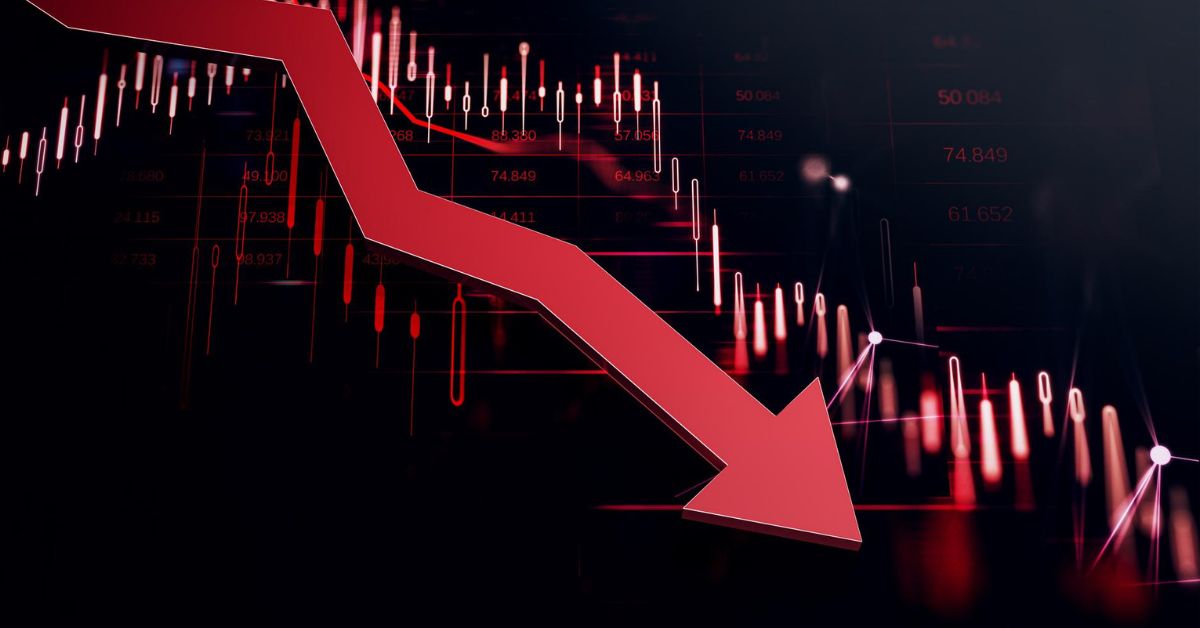A trading career in financial markets can be both exhilarating and daunting. There is one obstacle that many traders face: fear. This fear can undermine their decision-making and impact their overall performance. So, what causes fear in trading? In this blog post, we’ll explore the various factors contributing to fear in trading. We’ll also discuss practical strategies to address these issues and enhance your trading experience.
It is crucial to understand the root causes of fear in trading to overcome it. Prime XBT offers traders reliable tools and resources to help them navigate these challenges. The platform can help traders gain the confidence and insights they need to manage their fears. So, join PrimeXBT today! Use promo code PRIMEOTT to receive a +7% bonus on your deposit.
What Causes Fear in Trading?

Fear is a typical emotional response in trading and can significantly impact a trader’s performance. Managing and overcoming fear requires an understanding of the various sources of fear. Such as:
Fear of Loss
Fear of loss is a powerful psychological barrier. Traders often focus more on potential losses than gains, leading to excessive caution and hesitation. Anxiety over losing money can prevent traders from taking necessary risks, resulting in missed profitable opportunities or poor decisions.
Fear of Failure
Fear of failure is another major cause of anxiety. Traders feel intense pressure to succeed, often from personal or external sources. This fear of failing can lead to stress and indecision. Traders may avoid taking risks or making trades to prevent failure. This avoidance can negatively impact trading performance and growth.
Fear of Missing Out (FOMO)
FOMO is a common issue in trading environments. Traders worry about missing out on profitable trades or market movements. Social media and market hype can intensify this fear. The anxiety of potentially missing a good opportunity can lead to impulsive decisions. It can result in poorly timed trades and increased risk.
Lack of Confidence
Lack of confidence significantly affects trading behavior. Traders who doubt their skills may hesitate or second-guess themselves. This self-doubt can lead to missed trades or poor execution. Building trust through experience and education is crucial for better trading decisions. Confidence helps traders act decisively and effectively.
Market Volatility

Market volatility creates uncertainty and fear among traders. Rapid price fluctuations can be unsettling and confusing, and traders may struggle to adjust their strategies in a volatile market. This fear of unpredictability can lead to erratic trading and missed opportunities. Managing risk and staying informed can help navigate market volatility.
Economic Uncertainty
Economic uncertainty impacts traders’ confidence and decision-making. Global events and financial news can cause market fluctuations. Unpredictable economic conditions make it challenging to anticipate market movements. Traders may become overly cautious or hesitant due to this uncertainty. Staying informed and adapting strategies can help manage this fear.
Complexity of Financial Instruments
The complexity of financial instruments can be daunting for traders. Understanding various products and their functions takes time and effort. This complexity can create a fear of making mistakes, so traders might avoid certain instruments or strategies. Education and experience are key to overcoming this challenge.
Personal Financial Pressure
Personal financial pressures can influence trading decisions. Concerns about personal finances can heighten anxiety and affect judgment. Due to financial stress, traders might become risk-averse or overly cautious. Managing personal finances and setting realistic trading goals can help alleviate this pressure. This balance is crucial for effective trading.
Stress and Mental Health
Stress and mental health issues contribute significantly to trading fear. External life stresses can impact focus and decision-making abilities. Maintaining good mental health is essential for effective trading. Stress management techniques, such as mindfulness and relaxation, can help improve trading performance. Addressing mental health can lead to better trading outcomes.
Work-Life Balance
An imbalanced work-life situation can affect trading performance. Stress from personal or professional life can influence trading decisions. Ensuring a balanced lifestyle helps maintain clear thinking and decision-making. Traders should strive for a healthy work-life balance to perform optimally. This balance supports better trading practices and reduces stress.
How to Overcome Fear in Trading

Overcoming fear in trading requires a multifaceted approach. Effective strategies can help manage anxiety and improve decision-making. Several techniques can help you become a more confident and disciplined trader.
Education and Skill Development
Building a solid foundation of knowledge helps reduce fear. Educating yourself about market dynamics improves confidence. Engage with trading courses, webinars, and books to enhance your understanding. Practice trading strategies in a simulated environment to gain experience. Continuous learning keeps you updated on market trends and reduces uncertainty.
Developing a Trading Plan
A well-structured trading plan is crucial for managing fear. Define your trading goals, risk tolerance, and strategies clearly. A plan helps in making disciplined and informed decisions. Establishing rules for entry, exit, and risk management provides structure. Following your plan consistently minimizes emotional decision-making and enhances confidence.
Emotional Regulation Techniques
Managing your emotions is essential for trading success. Practice mindfulness and meditation to stay calm and focused. Regular physical exercise can reduce stress and anxiety. Develop a routine that includes relaxation techniques to maintain emotional balance. Effective emotional regulation helps in making rational decisions and managing fear.
Seeking Professional Help
Professional support can be beneficial for overcoming fear. Consult with a trading coach or psychologist for personalized guidance. Professional help can address deep-seated psychological issues affecting trading. A therapist can assist in developing coping strategies and improving mental resilience. Seeking expert advice is a proactive step towards better trading outcomes.
Our On Tilt Trading Store offers specialized trading psychology coaching to address your specific challenges. You can gain mental resilience and develop coping strategies with our expert guidance. We can help you improve your trading performance and confidence by providing professional coaching. Check out our store today and use promo code OTT10 to receive 10% off your order.
FAQs
Why am I afraid to trade?
Fear in trading can arise from several sources. You might be afraid of losing money, making mistakes, or experiencing failure. Previous trading losses can heighten this anxiety, causing excessive caution. Fear of missing out on opportunities or lacking confidence can also contribute to your fears.
Additionally, market volatility and the complexity of financial instruments can add to your apprehension. Trading anxiety can be managed and reduced with education, a well-structured trading plan, and emotional regulation techniques.
How do you do fearless trading?
Fearless trading involves several vital strategies. Start by building your knowledge through education and practice. Develop a clear trading plan with defined goals and risk management rules. Stick to your plan to avoid emotional decisions.
Use emotional regulation techniques, like mindfulness and stress management, to maintain calm. Regularly review and adjust your strategies based on performance and market conditions. Seeking professional coaching can also help address underlying fears and enhance your trading confidence.
How can I be confident in trading?
Confidence in trading comes from a solid foundation of knowledge and experience. Educate yourself about market trends, strategies, and tools. Develop a clear, detailed trading plan and stick to it. Practice trading in a simulated environment to build skills and confidence.
Set realistic goals and review your performance regularly to learn from successes and mistakes. Manage your emotions with techniques like mindfulness and stress reduction. Seeking mentorship or professional coaching can also enhance your confidence and trading abilities.
How can I control my mind while trading?
Controlling your mind while trading involves several strategies. Practice mindfulness to stay present and manage stress. Develop a structured trading plan to reduce emotional decision-making. Set clear rules for entry and exit points to follow consistently. Use relaxation techniques, such as deep breathing, to calm your mind.
Regularly review your trades to learn from both successes and mistakes. Incorporate routine breaks to avoid burnout and maintain focus. Seeking professional coaching can also provide personalized strategies to help manage your mental state.
Why is trading so stressful?
Trading is stressful due to several key factors. Market volatility causes uncertainty, leading to anxiety about potential losses. The high pressure to make profitable decisions adds to the stress. Personal financial stakes and fear of failure can further intensify the emotional burden.
Constantly monitoring market trends and adapting strategies can be overwhelming.
Additionally, the need to manage risks while striving for gains creates a high-stress environment. Effective stress management and a well-defined trading plan can help alleviate some of this pressure.
Conclusion
Trading is inherently challenging and can be stressful due to various psychological and market-related factors. Trading success depends on understanding what causes fear and implementing strategies to overcome it. You can improve your trading performance by building knowledge, creating a plan, and managing your emotions. If you are experiencing emotional decision-making difficulties, consider tools that can help.
Are you tired of losing money due to panic selling or FOMO? We recommend the Vestinda trading app. It eliminates emotional decision-making with automated crypto trading strategies, helping you trade more effectively. Integrating these strategies and tools can reduce anxiety, boost confidence, and give you more control over your trading.



